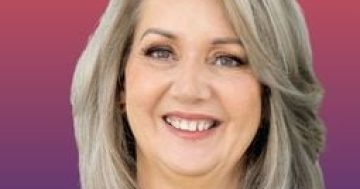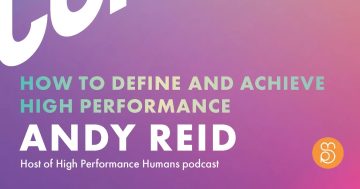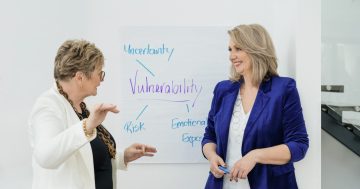Michelle Gibbings* says we should never define ourselves by what others think we can – or can’t – do.
 We frequently hear and read rules and guidelines about what we should or shouldn’t do.
We frequently hear and read rules and guidelines about what we should or shouldn’t do.
We’re told to drink eight glasses of water a day, get so many hours of sunshine and sleep a day, and so on.
Interestingly, many of these rules for living aren’t based on substantive evidence.
For example, the concept of needing to get 10,000 steps a day for health can be traced back to a marketing campaign to promote a pedometer many years ago.
Likewise, in other aspects of your life (both personal and working) there are rules you hold onto that guide what you believe, how you think and how you act.
Some of these rules will be helpful, and others less so.
Some will have merit and others not. Some will be based on fact, while others will be fiction.
These rules, which are often unwritten and subconscious, dictate the choices you make, and over time, how your life unfolds.
These rules will be based on the expectations other people have of you; your past experiences; what you’ve been told by others is the right or wrong thing to do.
Or simply the limitations or expectations you place on yourself
They become internalised as the stories you tell yourself.
What you can and can’t do; should and shouldn’t do; who you are and aren’t, and how worthy you are or aren’t.
I spent time earlier this year with researcher Brené Brown getting immersed in her Dare to Lead program.
It reminded me how hard it is — for each of us — to show up every day and be ourselves.
To not conform to expectations and to step out of the shadows and to stand up for who we are and who we want to be.
In her work Dr Brown references a famous quote by American writer and mythologist, Joseph Campbell.
“The cave you fear to enter holds the treasure you seek”.
Stepping outside of what’s expected of you is hard.
Stepping into a new leadership role comes with a raft of new challenges.
Standing up for what matters in life comes with risks attached.
There’s the risk of failure, ridicule and disappointment; and of course, the critics on the sideline, who are always ready to criticise.
Yet, it is only when you stand up and step into the unknown — the cave — and have the courage to walk past the fears that you are able to dare greatly and achieve what you want and need to achieve.
That takes courage.
The good news, as Dr Brown’s research has confirmed, is that courage is a skill that is observable, teachable and measurable.
What does courage look like for you every day?
For me, it’s challenging myself to do the things that make me feel uncomfortable.
It’s picking up the phone and having the difficult conversation that needs to be had.
It’s reminding myself to not make snap assessments, and remembering that good things ultimately happen when I am courageous.
How could a dose of courage change what you do today, and tomorrow?
As you ponder that final question, remember the words of former Israeli Prime Minister and Noble Prize Winner for Peace, Shimon Peres.
“You are as young as your dreams, not as old as your calendar.”
A great reminder that courage never dates and it’s never too late to take a step forward.
*Michelle Gibbings is the Melbourne-based founder of Change Meridian who works with leaders and teams to help them get fit for the future of work. She can be contacted at [email protected]
This article first appeared at www.changemeridian.com.au











